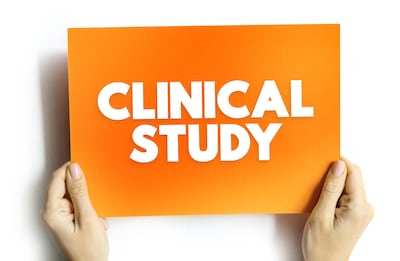Interviews
If the EU’s controversial Artificial Intelligence Act applies restrictive rules to pharmaceutical research and development activities, the UK could benefit from offering a more favorable regulatory environment, top lawyer Stephen Reese explains.
Using artificial intelligence in drug discovery and development could have huge benefits for companies, but a key challenge will be addressing how data is used to train AI tools and managing intellectual property issues, says Clifford Chance’s Stephen Reese.
Pink Sheet interviews with ex-FDA leaders and agency experts offer guidance for drug developers navigating an agency playing by a different and ever-shifting rulebook.
India’s moves on digital data protection don’t pose a hurdle to patient recruitment, but on the wish list of global innovators is permission for first-in-human (FIH) trials and removal of certain commercialization requirements, says Parexel’s India head
Alternatives to animal testing can replace lengthy, resource-intensive studies for drug developers, helping to lower costs for companies, but a lack of regulatory global alignment can be a barrier to reducing animal testing, an expert says.
The UK medicines regulator, the MHRA, and England’s health technology appraisal (HTA) body, NICE, spoke to the Pink Sheet about the new pathway that aligns the HTA and regulatory processes to cut the time it takes to bring medicines to market.
FDA’s proposed easing of biosimilar pathways is a mixed blessing for CROs even as it, along with tariff threats and funding scarcity, has led to paused clinical studies. Parexel’s India head talks about keeping up with the regulation and other AI-led changes in this interview.
Flu vaccines are specifically mentioned in the CBER director's internal email, but all new and some older vaccines seem to be affected. The impact on development programs is unclear.
While there is a general shift towards alignment and collaboration in health technology assessments in the EU under the new HTA Regulation, member states still have “their own recipe” when it comes to making reimbursement decisions.
While the volume of questions that companies have received from the EU member states under the Health Technology Assessment Regulation has been lower than expected, some firms are struggling with the comparator analysis required to answer some questions, an expert says.
Association for Accessible Medicines CEO John Murphy told the Pink Sheet that the FDA may need to consider phasing in the requirements for the new ANDA priority voucher incentive program if it wants sponsors to apply in the near-term.
In this second of a two-part series, Clifford Chance partner and life sciences legal expert Gunnar Sachs explains how the upcoming EU Biotech Act could place extra strain on SMEs due to overlap with other regulations and how to mitigate this through careful planning.
While industry awaits specific details on the EU Biotech Act, Clifford Chance partner and life sciences legal expert Gunnar Sachs explains the key aims of the new legislation and discusses the potential benefits for biotech firms.
Making use of regulatory pathways such as fast-track designation, accelerated approval and conditional marketing approval can “really appeal to investors” and can help secure funding for clinical trials, says the CEO of rare disease biotech SynaptixBio Dan Williams.
The European Commission, Parliament and Council should be mindful of ‘significant new risks’ posed by MFN drug pricing in the US during negotiations that will shape the bloc’s pharmaceutical legislation, a lawyer from Sidley Austin says.
While the EU's draft good manufacturing practice guideline on pharmaceutical quality systems reflects modern quality management principles, it also presents significant operational and resource challenges for drug companies.
Sponsors should systematically incorporate real-world evidence generation in all development programs, advises an epidemiology-forward “blueprint” Aetion executives developed.
Attorney Brent Wisner suggests the FDA “should be focusing on slowing down and making sure they get it right. Because at the end of the day, getting it right is more important than making sure drug companies can make more money. That shouldn't be the priority.”
Senior Indegene executive William Lobb talks about complexities of the direct-to-patient distribution model in the US, including potentially introducing new intermediaries into the system. Questions on MFN's feasibility and why it may be “catastrophic” to biopharma were also part of the discussion
If the UK is to become a top three country in the cell and gene therapy space, it must overcome the current political “stumbling block” around making changes that recognize the value of these therapies, Matthew Durdy, CEO of the Cell and Gene Therapy Catapult, tells the Pink Sheet.




















